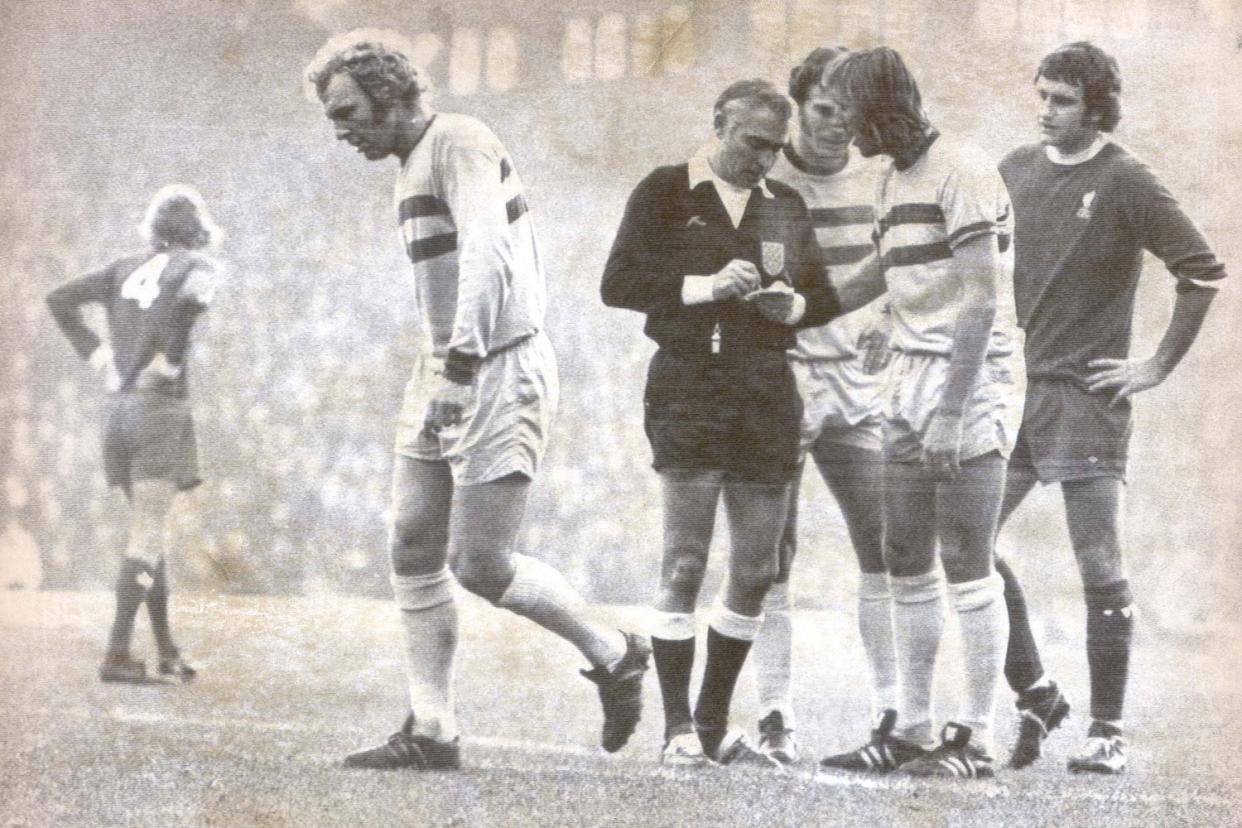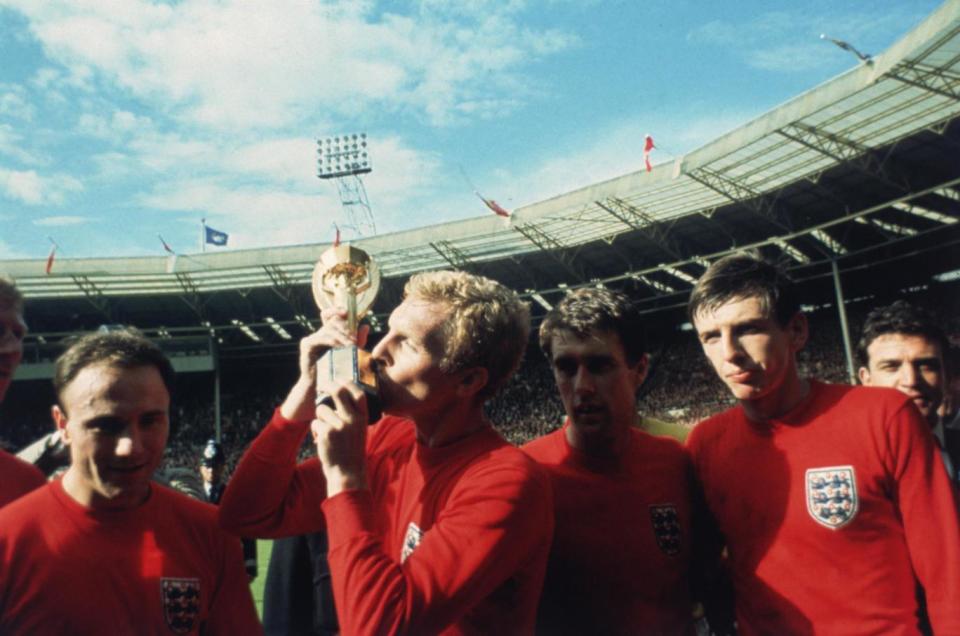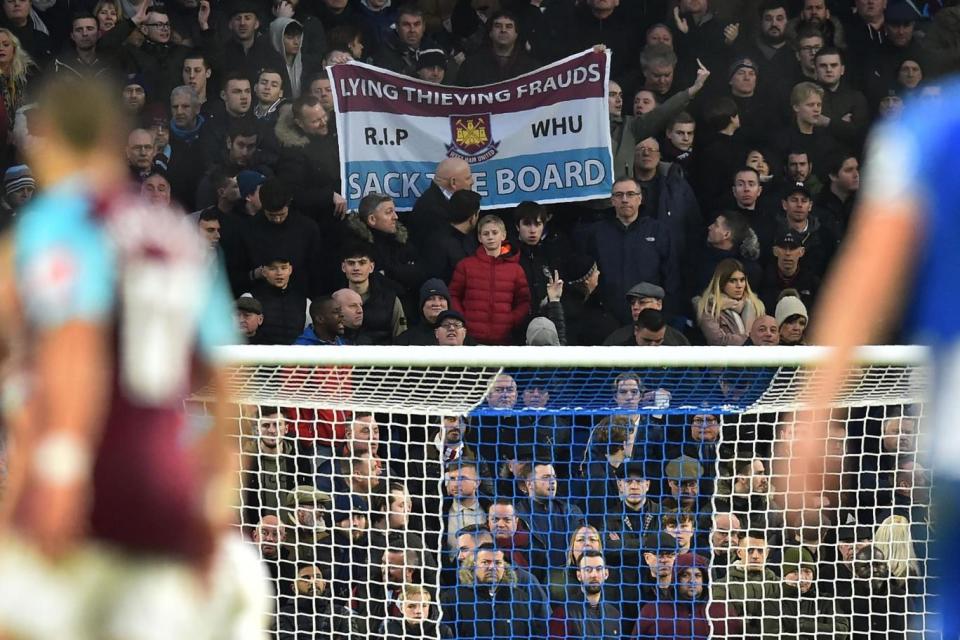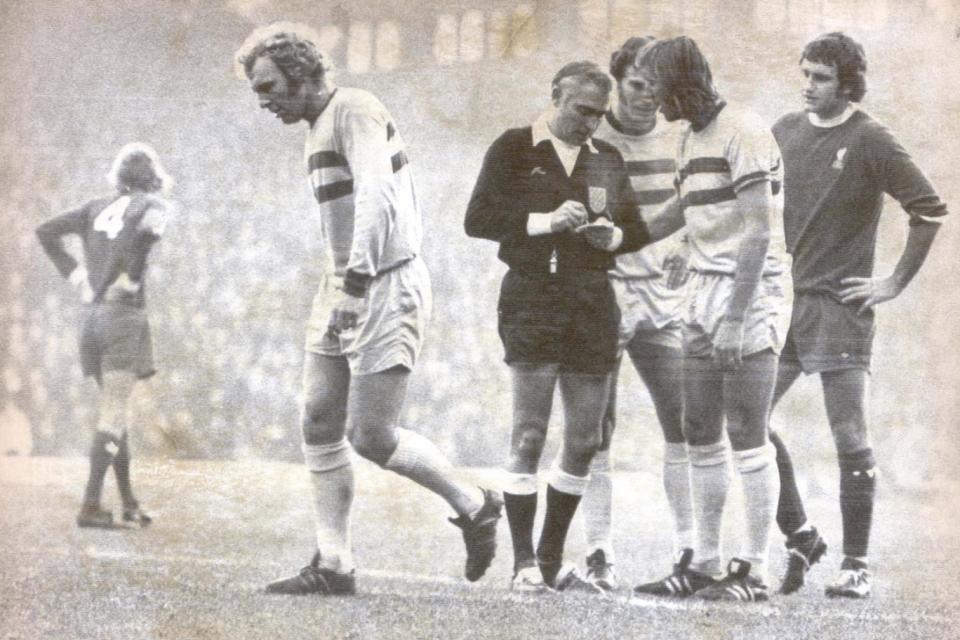Bobby Moore celebrations show how a nod to Billy Bonds could unite West Ham

Bobby Moore died 25 years ago today. With each significant anniversary of his death, the veneration and commemoration of his memory and achievements grows. A dedicatory mural has been erected at West Ham’s London Stadium, there are tributes in the papers and his old colleagues and friends have been reminiscing again.
In some cases in football, this kind of nostalgia can be irritating and cloying. All kinds of milestones are flagged up on a daily basis. There are club marketing departments at work, endlessly mining the good old days to find ways of flogging shirts, tickets, hospitality and merchandise.
In Moore’s case, it’s different. One simple fact makes that plain – that he is England’s only World Cup-winning captain. But there are many more reasons why it is right and proper that he is recalled in this way.
READ MORE: West Ham’s Reece Oxford courts attention from Atletico Madrid
READ MORE: Fonte leaves West Ham for China
READ MORE: West Ham Fan View: Three things to watch when Hammers face Liverpool
As such a supreme player and such a composed and visionary defender, he was hailed and revered by the other greats like Pele and Franz Beckenbauer. That, too, is why he is such an enduring figure.

Then there is the fact that he passed away so tragically young, at 51, which was poignant and painful for a nation where football is so deeply embedded in the foundations.
Taken so early, there are still now wistful comparisons to be made with the fact that as a younger man, on top of the world game, he looked like a blond god.
"Every club has history and every club has a soul and every supporter thinks that makes theirs the special one.When it comes to West Ham, the fans have a particularly acute awareness of this – partly because among London’s major outfits, they have the strongest regional identity."
Rising from east London’s streets to become an icon of the Sixties, he also became a symbol of the aspirational advance of the working class which took place in that tumultuous decade.
READ MORE: West Ham protest march to go ahead despite meeting with Karren Brady
READ MORE: West Ham feels like home for Arnautovic following stern talking to
READ MORE: West Ham plan Dagenham & Redbridge friendly
Along with his international achievements, he led West Ham in their most successful period, even if it was all too brief in the mid-Sixties. And in the elegant and intelligent way he played, he encapsulated all that his manager, Ron Greenwood, wanted to make so attractive and noteworthy about the club.
There were struggles, too, even though he performed on the pitch with such unruffled serenity. Ill health in his young prime. Business troubles. An uninspiring managerial career after he quit playing. Rejection, for a time, by the game and by the club where it all began.
So it is a paradoxically human story, too, even if it was crowned so majestically by that day at Wembley in July, 1966 which will captivate this nation for a long, long time – and certainly, while the struggles of its modern national football team contrast so starkly with the achievement of 52 years ago.
For this anniversary day, Moore’s club and its supporters will be united in recollection. There is surely no corporate cynicism in West Ham’s official commemorations. It would be wrong if they did nothing.
At this time, though, the re-living of Moore’s greatness has a fresh significance because on so many other fronts, there is division and dis-unity at the London Stadium.
Every club has history and every club has a soul and every supporter thinks that makes theirs the special one. When it comes to West Ham, the fans have a particularly acute awareness of this – partly because among London’s major outfits, they have the strongest regional identity. And partly, unlike Arsenal, Chelsea and Tottenham, they haven’t had nearly as much success – so pride is taken in tradition, customs and folklore instead.
This is why the move from Upton Park to the Olympic Stadium has been so painful for so many supporters. There were many good reasons why it had to happen and it could be a master-stroke in the end. But the soulless nature of the new arena has made the switch particularly tortured.
It’s why a protest march is planned by disgruntled supporters before the home game against Burnley on March 10. There are complaints about the way the club is being run by David Sullivan and David Gold but at the core of the discontent, I believe, is the sense of dislocation and bewilderment created by the new surroundings in Stratford.
Sullivan and Gold had no choice but to take the opportunity. But it is taking an awfully long time for the club to settle in, even while gates now regularly soar past 50,000.

Against the backdrop of the anniversary of Moore’s death, the present is echoing the past. The West Ham team of the Sixties which he led to victory in the 1964 FA Cup final and the European Cup Winners Cup final the following never fulfilled its potential any further.
Now, the opportunities and growth promised by the owners after the departure from the Boleyn Ground haven’t yet materialised. It is still early days, of course. But the move has made many fans restless and sceptical about those promises. Really, time may be the only healer of these particular divisions.
Meanwhile, the side are at Anfield and it’s a pointer to the core nature of the club that in all of Moore’s 16 years in the Hammers first team, he won once there. In fact, when Slaven Bilic’s team triumphed on Merseyside in 2015, it was West Ham’s first victory at Liverpool since that game in 1963.

It’s my belief that most fans venerate Billy Bonds (above, with Moore) as their greatest hero – which is why the club would do well at this fractious time to heed their wish to have a stand named after him at Stratford.
Moore, who had human frailties along with his elevated qualities as a footballer and a leader, was even jeered for a spell at Upton Park after the infamous Blackpool nightclub incident of 1971.
The outpouring of emotion upon his death in 1993 and the festooning of the gates and surrounds of Upton Park with flowers and mementoes made it plain how profoundly all had been forgiven.
The tributes came from far beyond West Ham - from all across the globe, in fact.
The scenes captured something that was special about West Ham (and that’s not to say they are any more special than other clubs).
But then they’ve always had more soul and tradition than they’ve had silverware in East London. The hope on this day must be that the club and the fans can find a way to re-connect with it in their new home.

 Yahoo News
Yahoo News 
